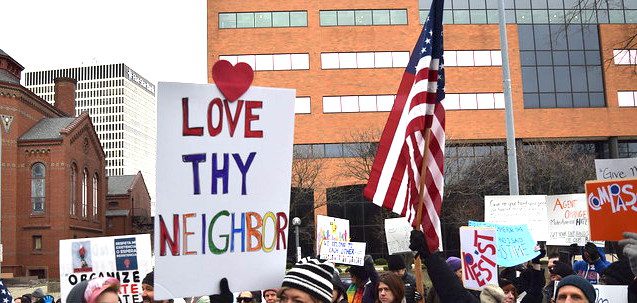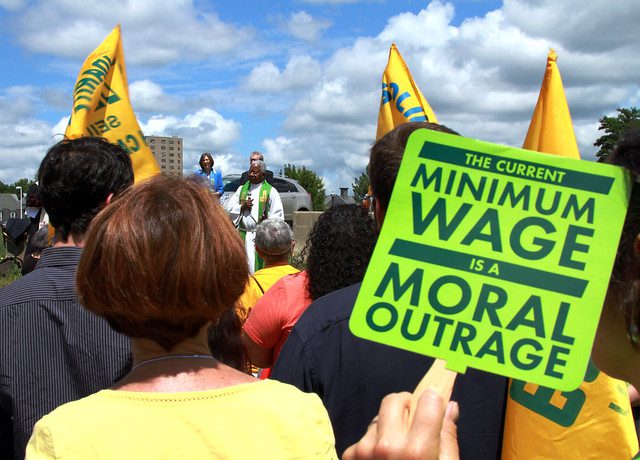Rent War Rages in New York City
A pitched battle is underway in New York State, as landlord and tenant advocates square off over the expiration of rent regulations this June 15. Republican State Senate majority leader Joseph Bruno has vowed to let rent protections “sunset” if leadership reaches no deal with Assembly Democrats. But tenant advocates are fighting back vigorously, organizing a massive statewide field campaign to preserve New York’s 50-year history of rent regulation.
New York’s rent regulations cover over one million apartments in New York City, Westchester, and Nassau County, and thousands in upstate regions, giving tenants a rent break totaling nearly a billion dollars a year. With the vacancy rate in New York City just edging over four percent and the rate among units affordable to very low-income families dwindling to nearly zero, rent regulations provide needed relief to low- and moderate-income renters.
From 1974 (when the laws were last overhauled) to 1993, the regulations did not allow any vacancy decontrol. In addition, tax incentives helped convince many New York City developers to accept rent regulation on new buildings, which would otherwise have been exempt. This helped to offset losses due to co-op and condo conversions and kept the overall stock of regulated apartments relatively stable.
But in recent years landlords have mounted a campaign to whittle down rent laws and the broad constituency that supports them. Three years ago, regulation opponents added weakening amendments to renewal legislation, decontrolling apartments with rents over $2,000 and where the household income is at least $250,000. Now, Bruno and others want luxury decontrol expanded until regulations protect only the lowest income families and senior citizens.
Recent polls, however, show rent regulation enjoys solid support among voters. The New York Times has speculated that Republican Governor George Pataki, who is on the record supporting vacancy deregulation, is a likely “target of tenants’ wrath if rent laws lapse or are severely weakened.” Tenant advocates, led by the Showdown ’97 and the New York State Tenant and Neighbors Coalition (NYSTNC), have threatened election day retaliation against anyone who votes to hike rents. They argue that reducing the universe of protected apartments could eliminate the broad political constituency that has kept the regulations largely intact.
Advocates have alerted tenants to the risk of deregulation, using nightly phone banks to contact over 600,000 households and a door-to-door campaign to reach another 150,000. NYSTNC’s paid membership has swelled to over 20,000 people.
Housing activists are encouraged by voters’ favorable response. And reinforcement of their message has come from some unlikely places: in midtown Manhattan last week, a counterperson at Starbucks urged customers to support the rent laws as she passed their cappuccinos over the counter.
By Thomas Kamber, Project Director at the Urban Homesteading Assistance Board in New York City. For more information, call NYSTNC at 212-695-8922.
(Read about what happened.)
NJ Fair Housing Win
The Planning Board of Mt. Laurel, New Jersey, ended a 26-year legal battle in April by unanimously approving construction of 140 townhouses for low- and moderate-income renters. Under a state court order, the board was to evaluate the project solely on whether it complied with local ordinances, The New York Times reported.
The vote allowed Fair Share Housing Development Inc., a nonprofit developer, to meet the April 31 deadline to apply for federal tax credits for the $15 million project. The project will be built on 63 acres of farmland and named after Ethel R. Lawrence, who originally brought the complaint after township officials rejected a proposal to build federally-subsidized garden apartments.
At the heart of this milestone ruling is the concept that suburban towns should shoulder a fair share of regional housing needs. A series of Mt. Laurel rulings oblige municipalities to “affirmatively provide for the construction of affordable housing and prohibit the use of zoning to block low- and moderate-income housing plans,” the Times reported. The Mt. Laurel rulings have also led to New Jersey’s Fair Housing Act, which prescribed local housing goals but has drawn criticism for failing to set a realistic level of need and creating loopholes that allow communities to avoid or limit construction to single-family homes.
While legal commentators called this most recent ruling a “significant development,” according to the Times, the hostile climate in most state legislatures makes the ruling less likely to have measurable effects on the creation of affordable housing.





Comments